Following the US Department of Justice's comprehensive antitrust lawsuit against Apple, new insights have emerged that shed light on Apple's influence within the market.
The DOJ filed the lawsuit on Thursday, March 21, accusing Apple of violating antitrust law and saying the company is a monopoly abusing its market dominance.
One aspect of the DOJ's case highlights how Apple allegedly limits the capabilities of smartwatches from competitors, particularly those running on Android when used with its own devices.
However, a report from Consumer Intelligence Research Partners (CIRP) on March 27 provides insight into Apple's accessory market share. It reveals a strong preference among iPhone users for Apple-branded accessories like AirPods and the Apple Watch.
More than 80% of those who purchase an Apple iPhone and also own a smartwatch or fitness tracker choose the Apple Watch. With Bluetooth headsets, AirPods command a significant majority among iPhone users who purchase Bluetooth headsets, with nearly two-thirds opting for AirPods.
In contrast, Samsung, a major player in the Android market, attracts less than 20% of Android users looking for Bluetooth headsets.
Apple responds to DOJ antitrust lawsuit
Apple's "walled garden" approach, promoting a seamless integration of its products and software, has long been a hallmark of its brand. The company defends its strategy as enhancing the user experience, but the DOJ contends it has partly enabled Apple's dominance by violating antitrust laws.
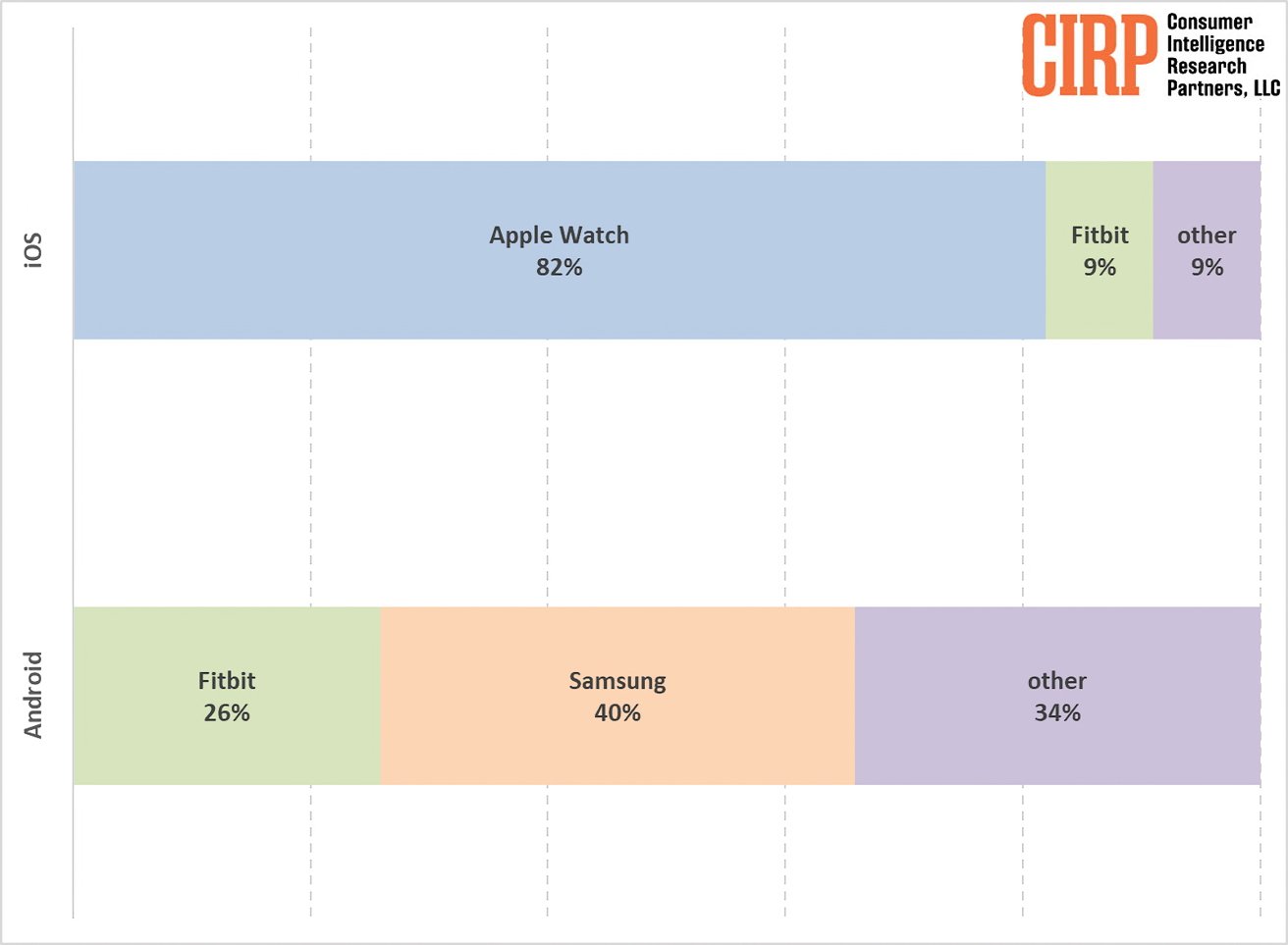 Market distribution of smartwatches among iOS and Android purchasers throughout the year ending in December 2023
Market distribution of smartwatches among iOS and Android purchasers throughout the year ending in December 2023These actions, according to Assistant Attorney General Jonathan Kanter, are part of a "Whac-A-Mole" strategy of contractual rules and restrictions allowing Apple to "extract higher prices from consumers, impose higher fees on developers and creators, and throttle competitive alternatives."
Apple has contested all allegations, asserting that they either stem from outdated data or are mischaracterizations of its operational practices.
One of the questions that the DOJ is exploring is whether consumers stick with Apple products because of loyalty to its devices or because Apple is limiting their choices and locking them inside the ecosystem.
"Do branded accessories attract buyers based on product alignment and design, or the fear that mixing brands increases the risk of interoperability problems?" CIRP asks. "Has the smartphone manufacturer made it difficult for competing devices to break into their system, with purposeful compatibility advantages that create an uneven playing field?"
The DOJ has accused Apple of creating an ecosystem that limits user choices, suggesting that Apple's practices restrict the options available to its customers. But its products still work with Android devices.
People who own an Apple Watch or AirPods can use them with their Android smartphones. Meanwhile, Google and Samsung have stopped supporting wearOS 4 on iPhones, reducing the choices for iPhone users interested in alternative smartwatch options.
Ultimately, there's a difference between commanding a significant share of a market, and attracting users based on device compatibility with software and services. So far, suggests that the continued preference for Apple products among its users stems from brand loyalty.
 Andrew Orr
Andrew Orr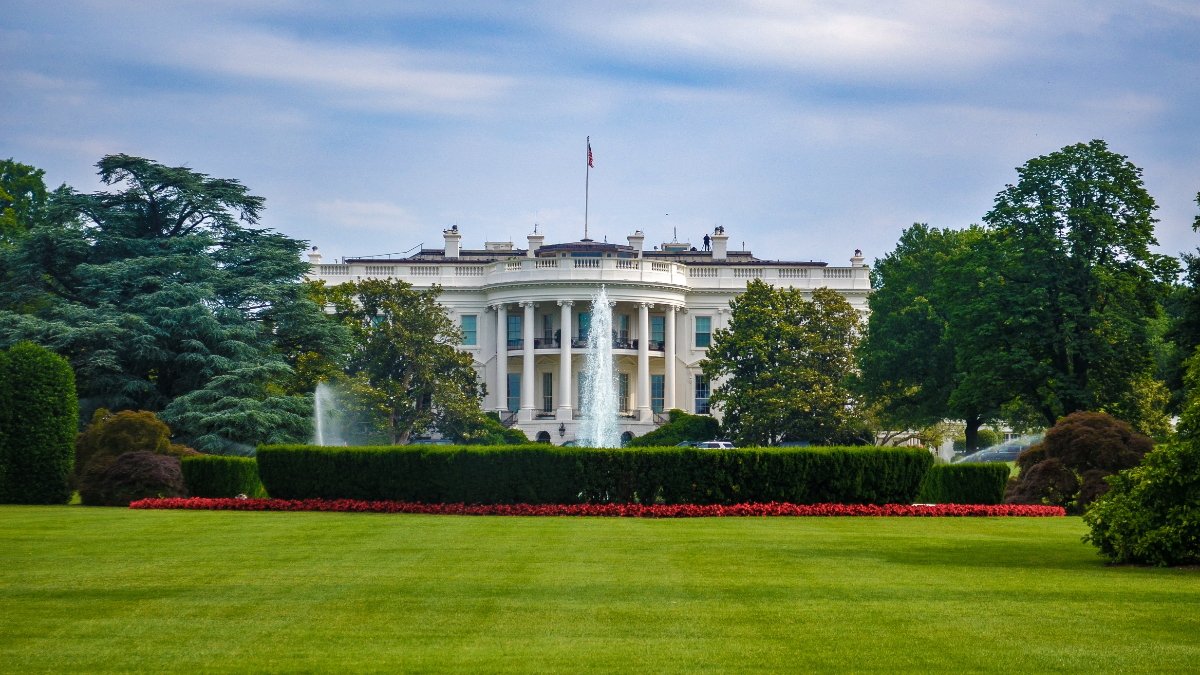
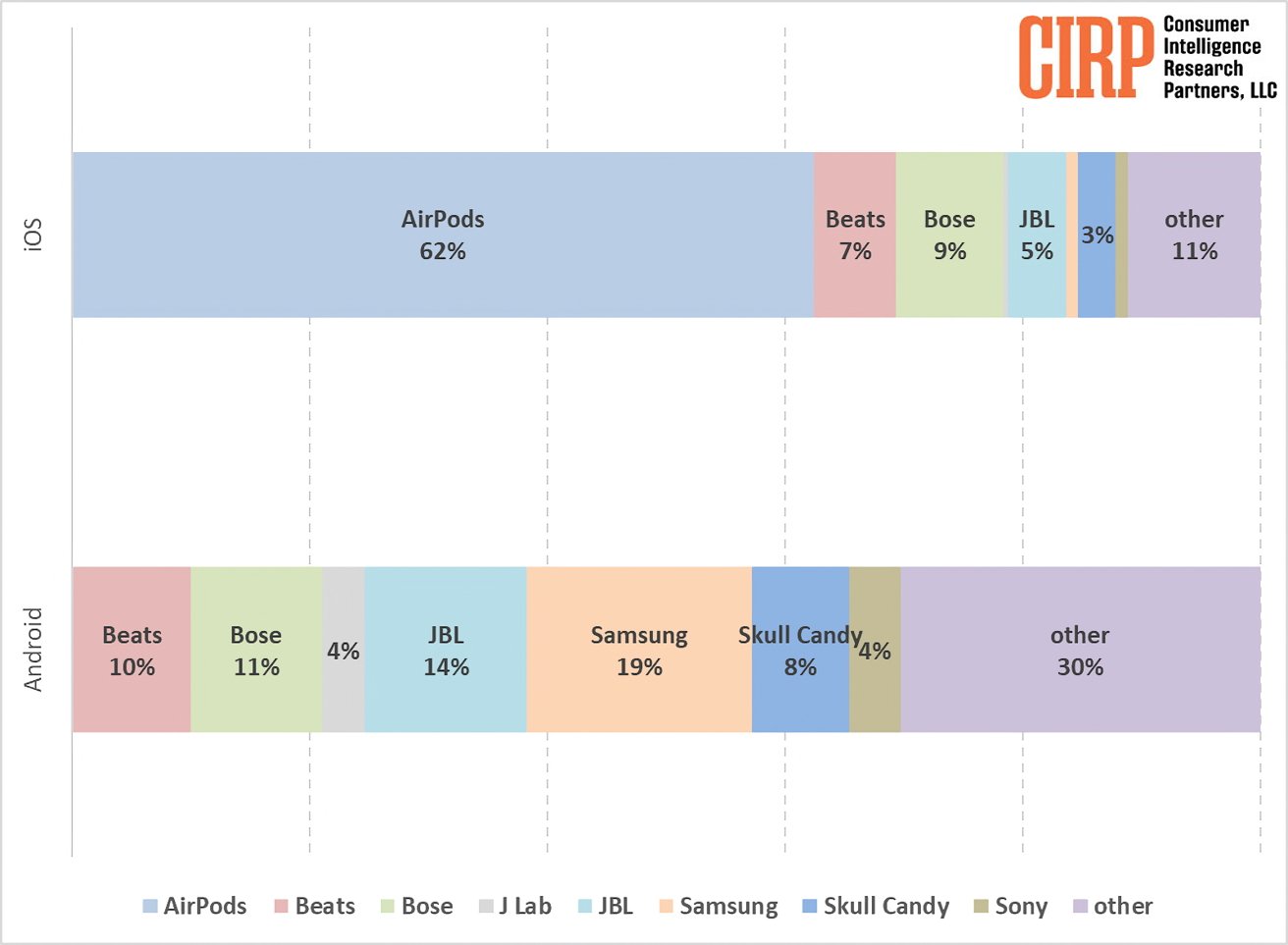




-m.jpg)


-m.jpg)






 Christine McKee
Christine McKee
 Chip Loder
Chip Loder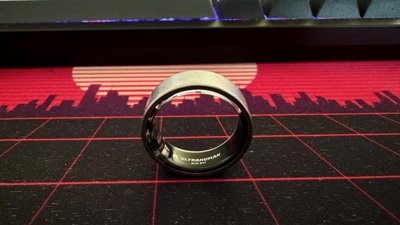
 Oliver Haslam
Oliver Haslam
 Malcolm Owen
Malcolm Owen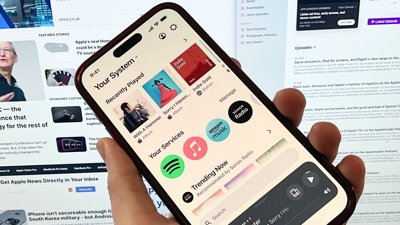
 William Gallagher
William Gallagher
 Amber Neely
Amber Neely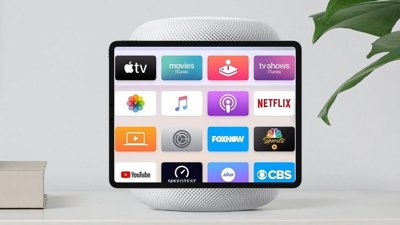
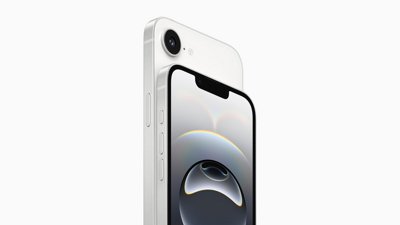








12 Comments
This article is as laughable & under cooked as the DoJ lawsuit,
I'm shocked any iPhone user, uses anything other than Air Pods 😳 They are clearly the best in the market, should Apple make them worse to satisfy the DoJ and other manufacturers?
Samsung watch has already 40% of the market on Android and it was launched 4 years later than Apple Watch, isn't giving Samsung watches away & Samsung Pods for free (bundled with their phones) anti competitive to other blue tooth headset manufacturers, because they don't make phones?
Anyway other watches work with iPhone, Samsung & Google have purposely made their watches incompatible with iPhone !
At this point I think the DOJ would want AirPods, Apple watch, iPhone, iPad and Mac to be separate independent entities.